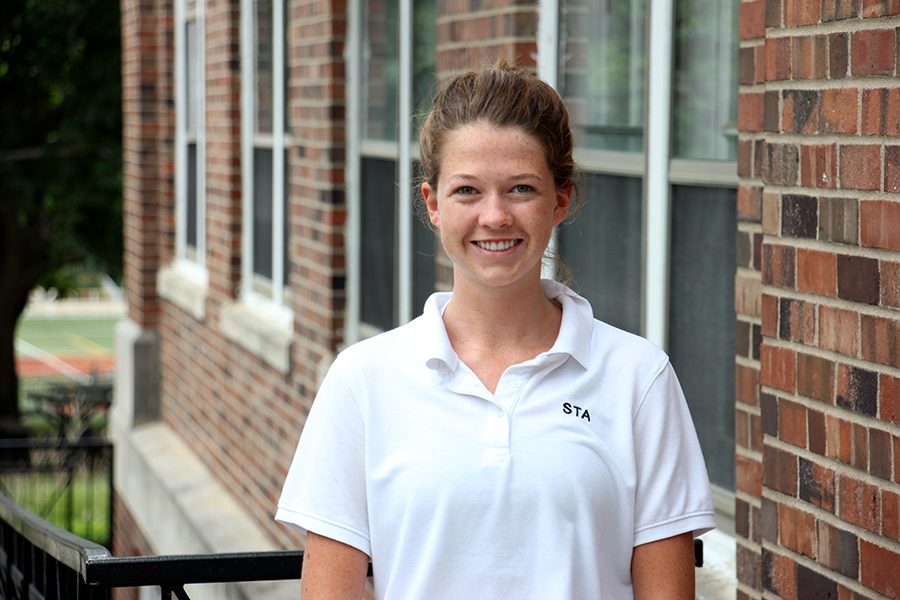Why lifeguarding is the best job ever
Lifeguarding is not only about basking in the sun, slathering sunscreen on yourself, and sitting in a chair all day, it requires constant alert, focus, and being ready for the worst possible situations.
September 21, 2016
As I sit in my chair scanning the pool crowded with red, burnt bodies, all I can think about is when my 20 minute rotation will pass. The hot Kansas sun beats down on me as drips of sweat roll down my legs. I look to my left, where babysitters and moms are constraining small, squirming children in order to lather them with SPF 500. I look to my right and see three teens laying out and basking in the sun, trying to capture the last rays of the day, envying them as I sit in my own puddle of sweat. Suddenly, the noise that is most dreaded to be heard by a guard echoes through the pool deck: a three count whistle, a stomach churning sound indicating that a save is in motion. For that moment, time freezes.
Life guarding may seem an easy, laid- back summer job to many. This is absolutely untrue. Life guarding requires skill, quick thinking and most importantly, focus. At any moment, on any day, an accident can occur and someone’s life could be in danger. Whether it be an inexperienced, small child jumping in the pool for the first time or an old man suddenly going into cardiac arrest, a lifeguard always has to be alert and prepared for anything that could happen.
Senior Liz Barton has been guarding for two years at Fairway.
“It can be stressful at times,” Barton said. “You literally are watching over people’s lives so if you aren’t focused, you could be in big trouble. It’s a high pressure job.”
Junior Hannah Steen recalls a save she experienced this past summer, having to do a full spinal save (a save in which the victim’s head and or spine is hurt) before sending a woman to the ER.
“A lady’s child jumped on top of her head while she was not paying attention and she was complaining about her arm and neck hurting,” Steen said. “Another guard called the managers and the guards on break over to help the lady that was hurt. Once we got caught up on what happened to her, our manager told us to backboard her.”
Luckily, the woman did not receive any major injuries and was OK. Saves like this do not occur everyday, but the guards at Fairway are always prepared.
“We train every Tuesday night for 2-3 hours for situations like these, so when I get to work, I feel very prepared.” Steen said.
Hannah is just one of many guards having to perform a save in a life threatening situation. At any moment, on any day, lifeguards are always prepared for the worst possible situations while on duty. Sweating buckets of perspiration, listening to small children shriek and wail, and peeling off your three layers of already sun burnt skin is easy, but saving the life of a drowning victim whom could die at any second is our job.












